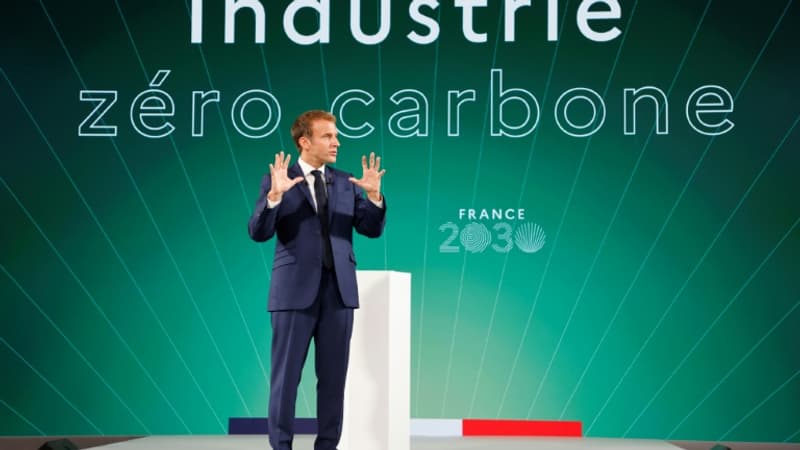The executive wants to accelerate his strategic investments. While the United States is very aggressive in this area with its Inflation Reduction Act, and China plays the decoupling card, France is going to extend its financing more quickly through the France 2030 fund.
8,500 million euros have already been committed, according to the executive, and the goal of 10,000 million euros is set for the end of the year. By the end of 2023, another 10 billion will have been disbursed, including 5 in the field of “green” innovation according to Matignon. With the key, a significant acceleration, and enough to reach cruising speed and deploy 54,000 million euros in 5 years, as Emmanuel Macron announced last year.
The first investments in 2022 are divided into two parts. On the one hand, decarbonisation projects in the automobile, hydrogen or nuclear: at the beginning of the month, facing the 50 largest French industrial emitters, Emmanuel Macron had thus set himself the goal of reducing emissions by 10 million tons in the next years. .
On the other hand, the State injected capital into new businesses. There energy continues to predominate, with for the moment three SMR nuclear reactors (miniature reactors), ten factories betting on hydrogen, including gigafactories of electrolysers, or even eight mini space launchers… 1700 projects underway.
More risks in disruptive innovations
According to information from BFM business, the executive does not intend to rescue the fund and increase the volume of investments. But in addition to the acceleration of the calendar, there will be more risks. In one year, France wants to go from 250 supported start-ups per year to 500 young start-ups deep tech, therefore specialists in groundbreaking innovations. Bpifrance will manage the operations with a budget of 500 million euros.
The executive also reserves an endowment of 5,000 million for projects classified as “exceptional”. He will also dedicate 2,500 million euros to training in “future” sectors.
It focused on three areas for improvement: first, to simplify the mechanisms to move faster in the progress of the projects; better structure training to find the talents of tomorrow; finally, to better territorialize the investments with the establishment of “sub-prefects France 2030”. So far, Île-de-France attracts 40% of checks, a figure “consistent with its economic weight”, according to Bruno Bonnell, secretary general of investments, in charge of France 2030.
Catalyze private investment
France 2030 must overcome a moment of change in the world economy. The United States has strongly accelerated its protectionist initiatives, investing massively in chips and renewable energy, through large public investment plans and tax incentives. China, for its part, dreams of becoming increasingly independent from the European and American markets, betting massively on industry and on absolute control of raw materials such as critical metals.
On the European side, current plans are struggling to convince, particularly with a token act very pale in the face of US initiatives, and too slow disbursements of the post-covid recovery plan of 750 billion euros. Therefore, Paris wants to accelerate on its own in the industrial and technological aspect, with one idea in mind: to attract public financing.
Private co-financing should make it possible to “double, triple or quadruple” the investments of France 2030, the executive hopes. Matignon has in mind the “Tibi” initiative, which in 2020 allowed to raise close to 6,000 million euros in technology from private institutional investors. The government is also working on a “Tibi 2”, with the same principle.
Source: BFM TV


